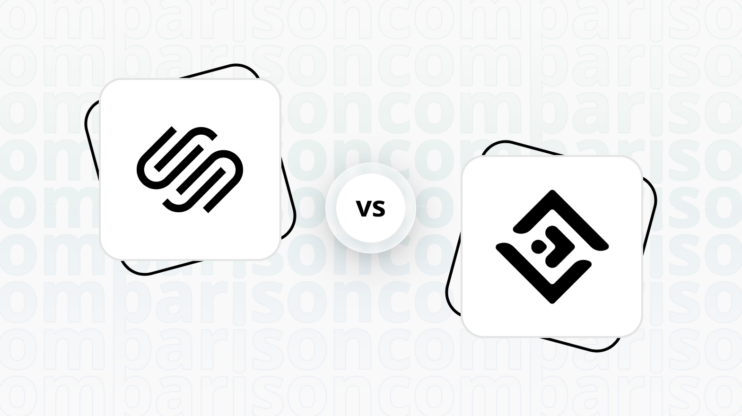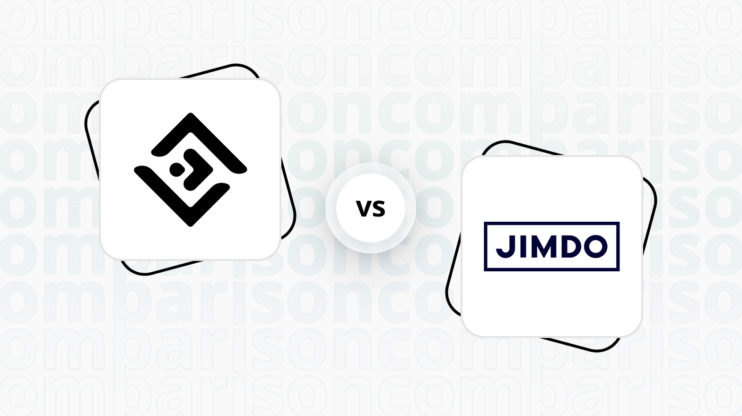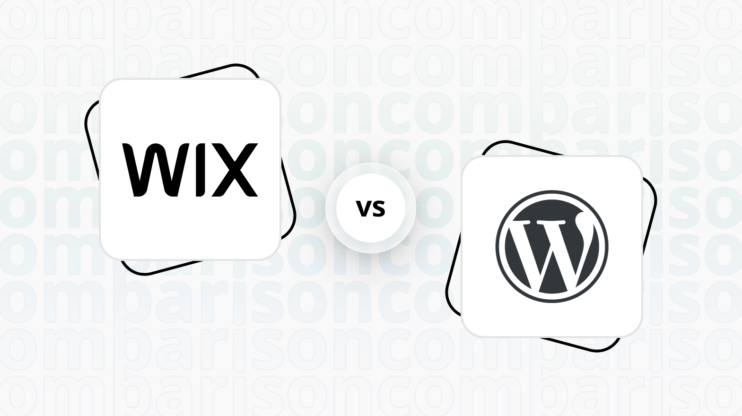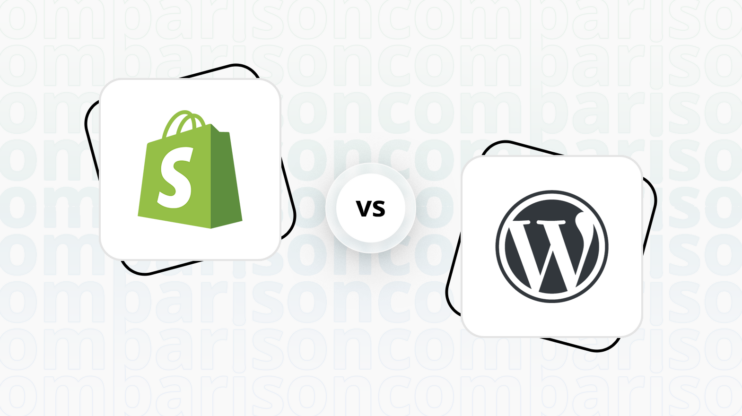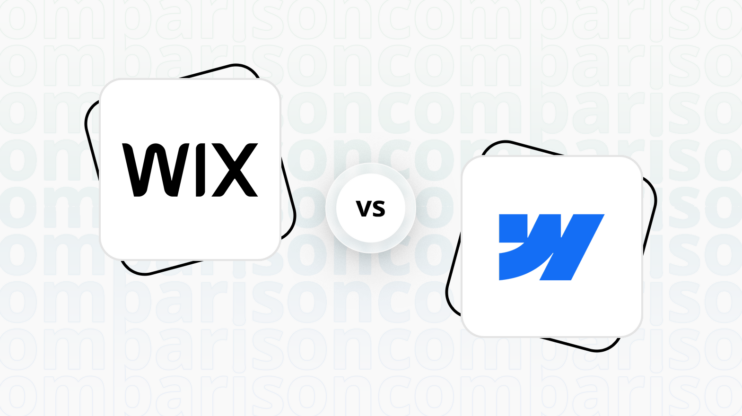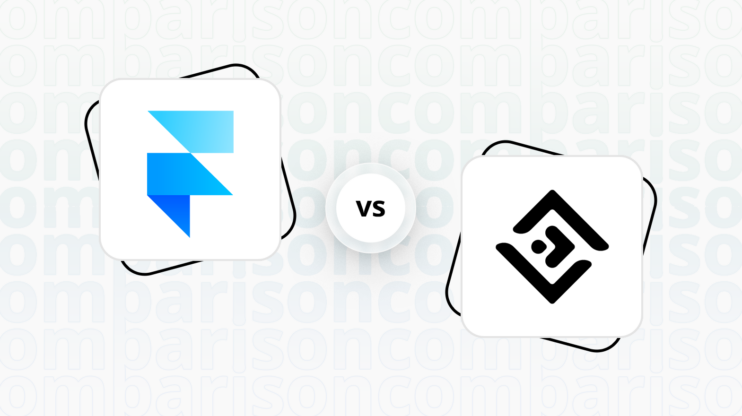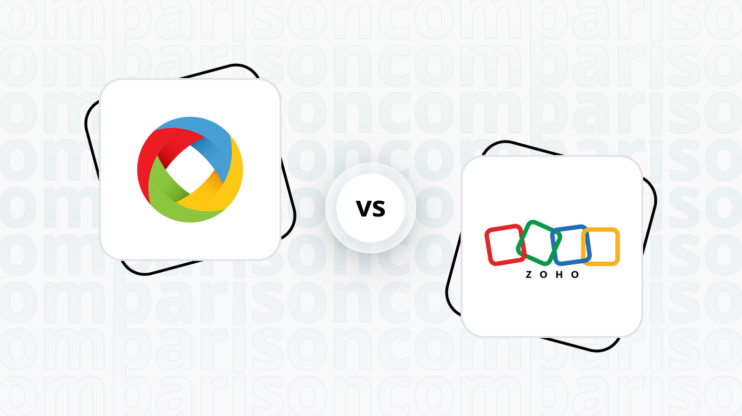Final verdict
Squarespace and Jimdo offer unique strengths, but Squarespace generally provides a more robust platform for a wider range of website needs.
-
Squarespace (Overall Grade: 7.9/10)
excels with its superior design options, comprehensive ecommerce features, and extensive customer support. It’s particularly well-suited for users looking for a blend of ease of use and advanced functionalities, including detailed analytics, marketing tools, and security measures. Squarespace’s platform is ideal for businesses, creatives, and individuals seeking a professional online presence with minimal hassle. -
Jimdo (Overall Grade: 7.2/10)
stands out for its simplicity and ease of use, making it a great choice for beginners or those looking to get a basic website up and running quickly. While it may not offer the same level of design flexibility or ecommerce capabilities as Squarespace, Jimdo provides essential features with a focus on speed and user-friendliness. It’s a solid option for small projects or personal sites.

|

|
|
|---|---|---|
|
Design functionalities & templates |
8.0 |
7.2 |
|
Ease of use |
8.3 |
8.0 |
|
Ecommerce |
8.2 |
7.0 |
|
Website Editors |
8.3 |
7.8 |
|
Product testing options |
7.4 |
6.4 |
|
Price |
8.4 |
7.5 |
|
Hosting quality |
7.6 |
6.7 |
|
Website speed optimization |
6.7 |
7.6 |
|
Plugins and integrations |
6.8 |
7.4 |
|
Marketing features |
8.1 |
7.2 |
|
Customer support |
7.8 |
6.8 |
|
Security |
8.8 |
8.3 |
|
AI capabilities |
7.5 |
6.0 |
|
User Management |
7.4 |
5.8 |
| Overall |
7.9 |
7.2 |
Best for ecommerce
 8.2
8.2
 7.0
7.0
Verdict
: Squarespace is the better choice for those seeking a more feature-rich ecommerce platform, while Jimdo is suited for simpler, more straightforward online stores.
-
Squarespace
: With a higher ecommerce score and a comprehensive set of features including advanced marketing tools, Squarespace is ideal for businesses looking for a robust online presence. Its diverse templates and customization options cater to a wide range of industries. -
Jimdo
: Offers a user-friendly approach with an intuitive drag-and-drop interface, making it a good option for beginners or small businesses. While it may not have as many features as Squarespace, its simplicity and ease of use are significant advantages for those just starting out.
Best for informational & business websites
 8.4
8.4
 7.4
7.4
Verdict
: Squarespace is the superior choice for informational and business websites, offering a higher score and a more robust set of features tailored to professional and visually appealing sites.
-
Squarespace
: With a score of 8.4, Squarespace shines for informational and business websites. It combines a user-friendly interface with a wide array of design options, making it ideal for creating professional, aesthetically pleasing sites. Its comprehensive set of features supports a variety of business needs, from portfolios to blogs and corporate websites. -
Jimdo
: Scoring 7.4, Jimdo is a solid option for those seeking simplicity and ease of use. While it may not offer the same level of design flexibility as Squarespace, it’s particularly beneficial for users with basic computer skills or limited time, aiming to get a straightforward, functional site up and running quickly.
Detailed comparison
Design functionalities & templates
Design FunctionalitiesRepresents how well each platform allows for creative design and customization of websites.Score Components:
- Template Variety (30%): Range and quality of design templates.
- Customization (30%): Flexibility and options for design alterations.
- User Interface (20%): Ease and intuitiveness of the design process.
- Responsiveness (10%): Adaptability to different devices and screen sizes.
- Innovation (10%): Unique design features and tools.
 8.0
8.0
 7.2
7.2
🏆
Winner: Squarespace.
Squarespace offers a wider variety of templates and design options, more customization flexibility, and better mobile responsive design.
Squarespace boasts an impressive variety of website templates, offering over 120 pre-designed options to choose from. These templates cater to a wide range of needs and industries, from creative portfolios and sleek online stores to professional business websites and personal blogs.


On the other hand, Jimdo offers a diverse range of templates suitable for various industries and user preferences, with options to preview and select templates easily. The platform allows flexibility in changing templates for existing websites and also provides a “Blank Template” for custom designs, catering to both beginners and advanced users.


Get a head start on website creation with AI
Create a custom website tailored to your business needs 10X faster with 10Web AI Website Builder!
Ease of use
Ease of useReflects the platform’s overall user-friendliness.Score
Components:
- Learning curve (40%): Quickness and ease of getting started.
- Interface design (30%): Simplicity and intuitiveness of layout.
- User guidance (20%): Quality of tutorials and support.
- Flexibility (10%): Adaptability to various user skills.
 8.3
8.3
 8.0
8.0
🏆 Winner: Squarespace
. With a score of 8.3, Squarespace edges out Jimdo, which scored 8.0. Both platforms are user-friendly, but Squarespace’s extensive learning resources and vibrant user community make it a slightly better choice for those prioritizing ease of use.
Learning Resources
🏆 Winner: Squarespace
. Squarespace provides a comprehensive Help Center, clear video tutorials, live webinars, an informative blog, and an active community forum, offering a varied and accessible learning experience for users of all levels.
For ecommerce
EcommerceMeasures the platform’s effectiveness in supporting online business activities.Score Components:
- Ecommerce themes and templates (20%): Variety and design of templates.
- Product management (25%): Ease of managing and organizing products.
- Payment options (25%): Variety and convenience of payment methods.
- Ecommerce features (20%): Features for managing an ecommerce store.
- Integration (10%): Compatibility with external e-commerce tools and services.
 8.2
8.2
 7.0
7.0
Squarespace and Jimdo both offer user-friendly ecommerce solutions, but they cater to different needs. Squarespace, with a score of 8.2, provides a more comprehensive set of features for businesses, including secure payment processing, flexible shipping options, automated tax calculations, built-in marketing tools, SEO optimization, and detailed analytics. On the other hand, Jimdo, scoring 7.0, offers a simpler ecommerce solution with an intuitive drag-and-drop interface, secure payment processing, mobile-friendly shopping experiences, and built-in marketing tools.

|

|
|
|---|---|---|
|
Ecommerce themes and templates |
7.5 |
6.5 |
|
Product page customization |
7.0 |
6.8 |
|
Payment processing and commissions |
7.8 |
7.5 |
|
POS capabilities |
6.5 |
5.0 |
|
Payment gateways |
7.5 |
7.0 |
|
Product numbers |
6.8 |
6.0 |
|
Additional ecommerce features |
7.2 |
6.5 |
Squarespace ecommerce features:
- Intuitive interface
- Secure payment processing
- Built-in marketing tools
- SEO optimization
- Website analytics
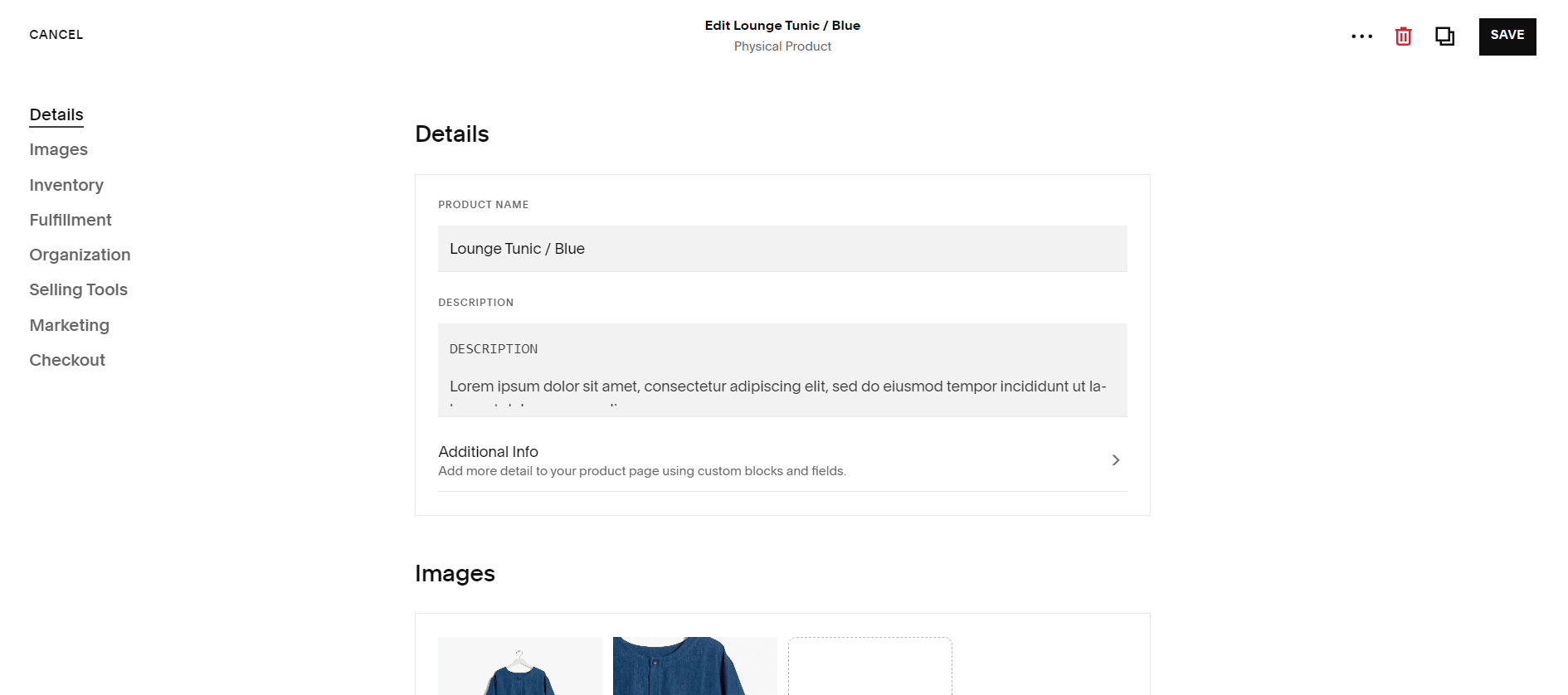
Jimdo ecommerce features:
- Product details and variations
- Inventory tracking
- No transaction fees
- Discount codes and promotions
- Email marketing

Ecommerce themes & templates
Squarespace provides a diverse selection of around 50 ecommerce templates, catering to various industries like fashion, beauty, home goods, and technology. These templates range from clean and minimalist to bold and colorful, accommodating different brand aesthetics and product types. Offering unique layout elements such as product sliders and featured collections, these templates enhance visual interest and engagement.
Jimdo’s ecommerce templates offer a diverse range of pre-designed themes, ensuring a mobile-friendly and smooth shopping experience. The drag-and-drop interface allows for easy customization of colors, fonts, and layouts, while templates focus on showcasing products with dedicated sections for images, descriptions, and clear calls to action.
Product page customization
Squarespace offers options for layout, design, and interactive elements on product pages. Choose templates, customize colors, fonts, and content. Enhance engagement with features like customizable buttons, wishlists, comparisons, reviews, and related products. Advanced options include custom code injection and third-party app integrations. Limitations include fixed core page structure and the need for technical expertise. Free templates have fewer customization options than premium ones.
Jimdo allows you to edit text, add images, adjust layouts, and modify design elements like colors and fonts to showcase your products effectively. This customization enhances the visual appeal and functionality of your online store, aiming to improve user experience and boost sales. Jimdo also offers additional features such as SEO tools and mobile responsiveness to ensure your product page performs well across different devices and search engines.
Payment processing
Squarespace provides flexible payment processing for online stores with integrated gateways like Stripe and PayPal. External gateways can be set up for specific needs. Transaction fees may apply depending on the plan and payment method. Security measures include PCI compliance and fraud prevention. Additional features include payment links, support for subscriptions, and the ability to accept international payments in various currencies.
Jimdo facilitates payment processing through various popular gateways like PayPal, Stripe, Mollie, and more, depending on your location and plan. While Jimdo doesn’t impose transaction fees, individual payment gateways may have their own charges, typically ranging from 2% to 3% of the transaction amount plus a fixed fee. Additionally, certain Jimdo plans may offer free transactions per month, providing flexibility for users based on their plan details.
Website Editors
Website EditorsEvaluates the platforms’ website building and editing capabilities.Score Components:
- Customization tools (40%): Range and power of editing features.
- Editor usability (30%): User experience within the editor.
- Design flexibility (20%): Freedom in layout and design changes.
- Update and maintenance ease (10%): Simplicity of updating and maintaining the site.
 8.3
8.3
 7.8
7.8
🏆
Winner: Squarespace
. Squarespace, with a score of 8.3, offers a user-friendly editor that allows easy drag-and-drop website creation without coding. With visually appealing templates and customization options, it caters to beginners and pros alike. The real-time editing experience ensures instant previews. Prioritizing content, it’s mobile-responsive and offers functional features like forms, social media integration, and online stores. Squarespace seamlessly integrates with tools for extended capabilities.
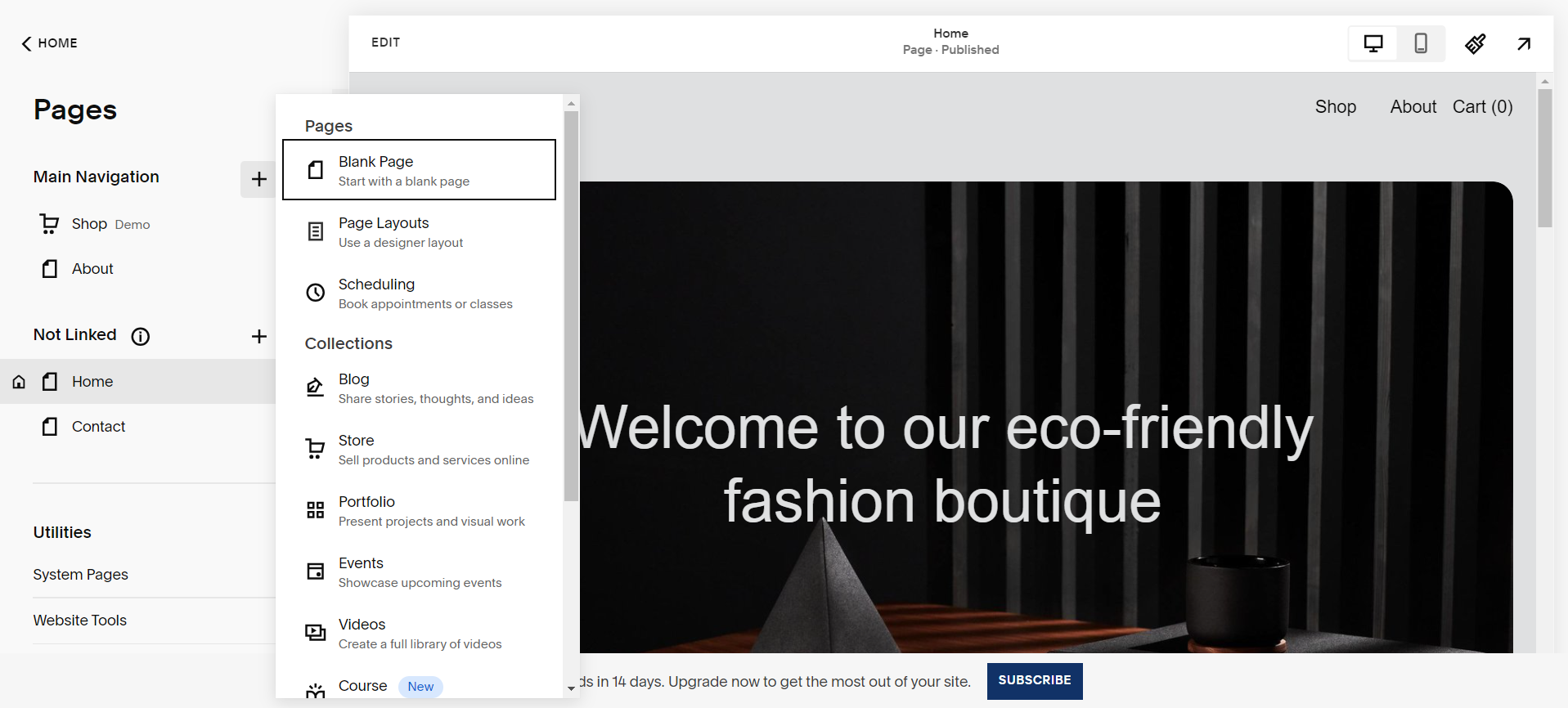
Jimdo’s editor, scoring 7.8, is designed to accommodate both novice and experienced users through its two main modes: Jimdo Dolphin and Jimdo Creator. Dolphin, an AI-driven tool, is ideal for beginners and creates websites based on user responses to a series of questions, streamlining the web design process. On the other hand, Jimdo Creator provides a more traditional website building experience with greater customization options, including a drag-and-drop editor and HTML widgets, catering to users seeking more control over their site’s design.
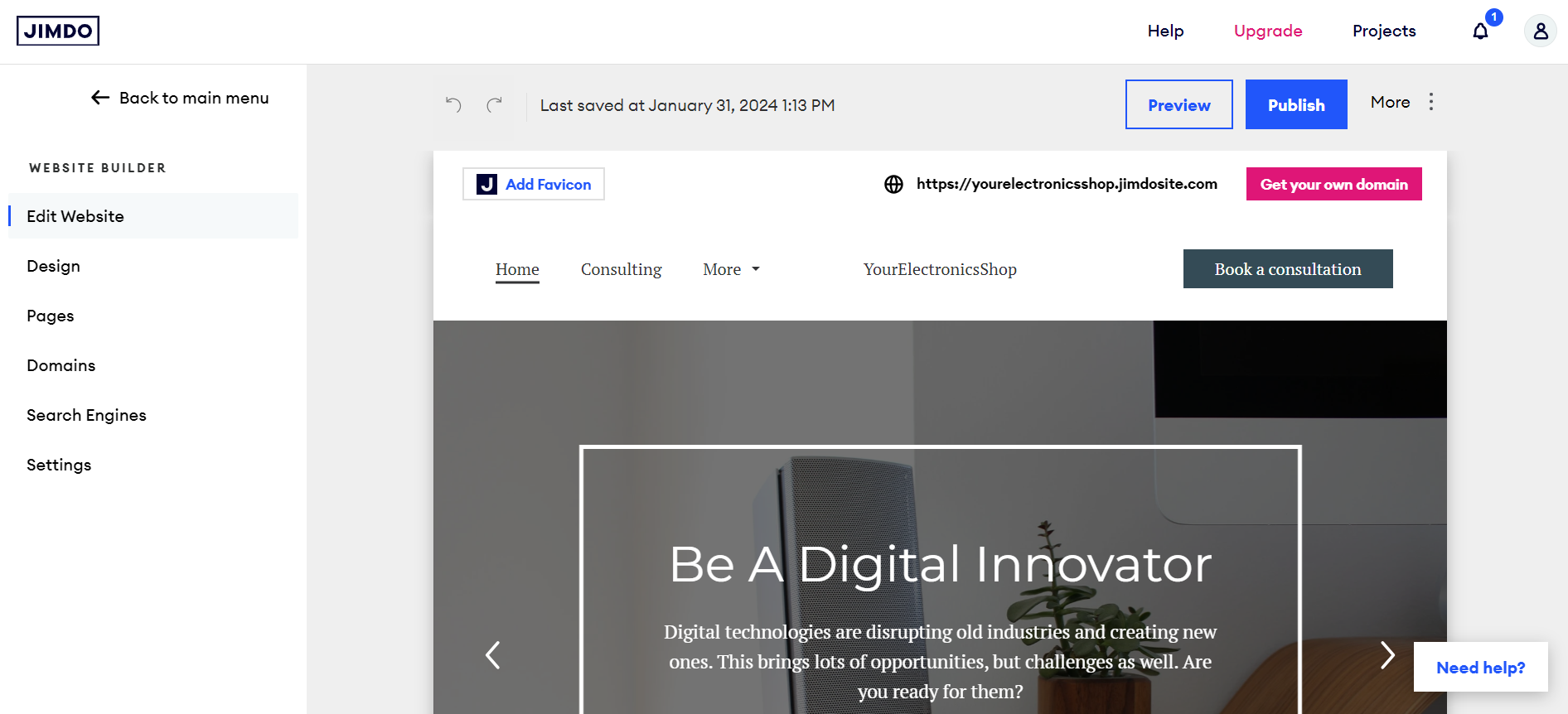
Mobile editor/app
 8.5
8.5
 8.0
8.0

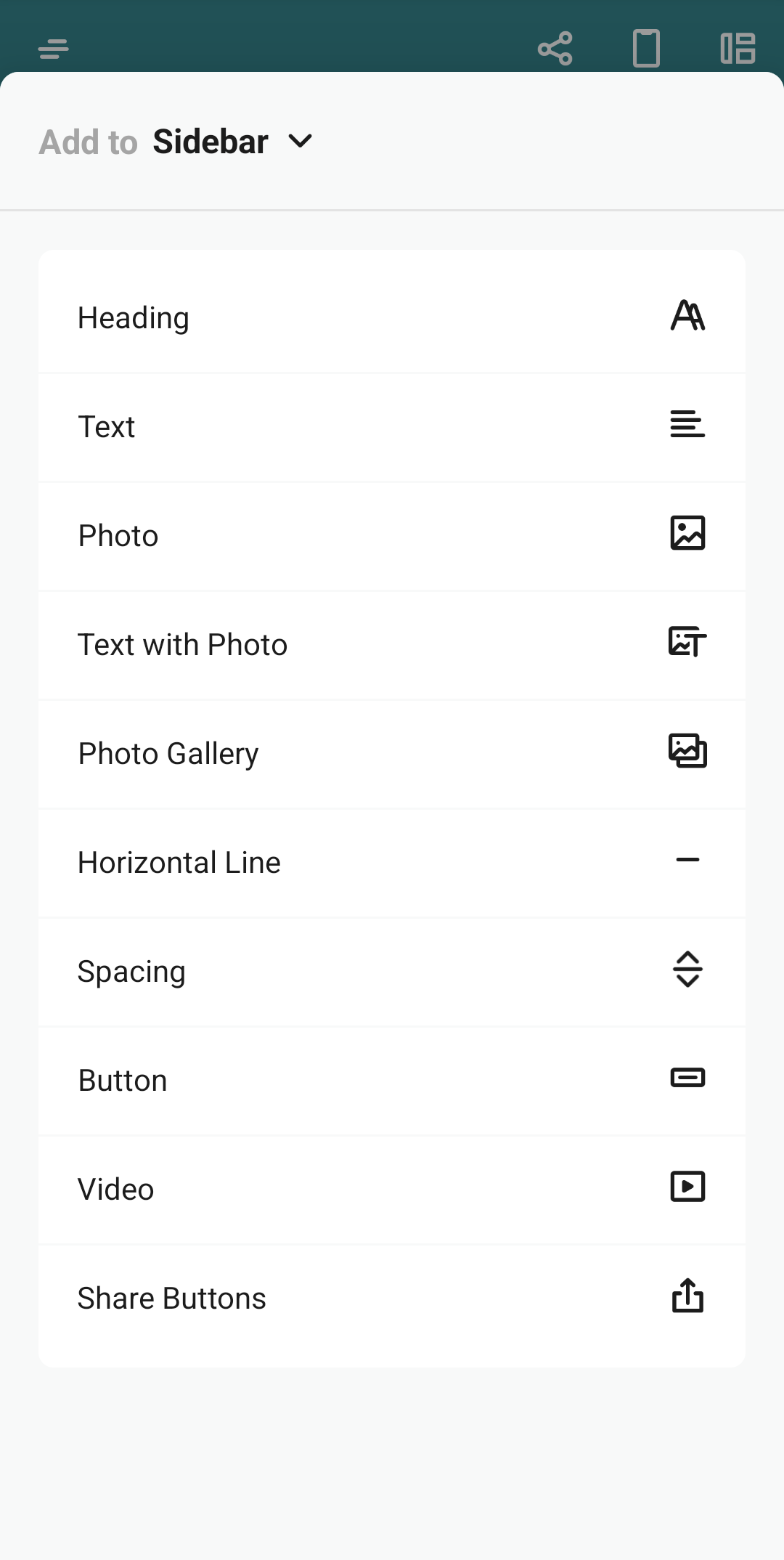
🏆
Winner: Squarespace
. Both Squarespace and Jimdo offer mobile apps for managing your website. Squarespace’s app allows mobile management of your website, enabling content editing, website analytics, online store management, and social media scheduling. However, complex tasks such as advanced design customization or creating new page layouts require access to the desktop editor, as the app doesn’t offer the full range of functionalities available on desktop.
On the other hand, Jimdo offers a mobile editor app, allowing users to create and manage their websites directly from their smartphones or tablets. This app provides a convenient way to edit and update your site on the go, including adding or modifying content, adjusting design elements, and managing your online store.
Despite Jimdo’s comprehensive mobile editing capabilities, Squarespace edges out with a slightly higher mobile editor score, indicating a better overall user experience.
Product testing options
Product Testing OptionsAssesses the options for trying out platform features before commitment.Score Components:
- Trial quality (40%): Extent and usefulness of the trial or free version.
- Feature accessibility (30%): How many features are available to test.
- Trial duration (20%): Length of the trial period.
- Ease of transition (10%): Smoothness of moving from trial to paid plans.
 7.4
7.4
 6.4
6.4
Overall Result
:
Squarespace Wins
. Squarespace scores 7.4, offering a 14-day free trial and the possibility to test most premium features. Jimdo, scoring 6.4, provides a free version and a 14-day money-back guarantee, but lacks a trial version.

|

|
|
|---|---|---|
|
Free Plan |
No |
Yes |
|
Trial Duration |
14 days | No, however they have 14 days money back guarantee |
|
Testing Premium Features |
Most of the premium features, except for custom code, premium integrations and removal of Squarespace branding |
You can explore basic features with the free plan, and for more advanced options, you can test them by subscribing to any of the paid plans. If you decide to cancel your subscription within 14 days, Jimdo offers a money-back guarantee. |
Price
PriceLooks at the cost-effectiveness and value for money of each platform.Score Components:
- Plan value (40%): What each pricing tier offers.
- Transparency and clarity (30%): Clearness of pricing structures.
- Flexibility of plans (20%): Range of options to suit different budgets.
- Hidden costs (10%): Additional expenses not included in the plan.
 8.4
8.4
 7.5
7.5
Squarespace and Jimdo both offer a range of pricing options, but Squarespace’s plans are generally more expensive. However, Squarespace offers more advanced features, especially for ecommerce, which may justify the higher price for some users.

|

|
|
|---|---|---|
|
Free |
No offering at this amount. |
Play ($0/month): Basic, entry-level plan offering limited features, ideal for testing Jimdo’s capabilities. Includes 500MB storage and up to 5 website pages. Limited ecommerce functionality. |
|
$5-$15 |
Personal ($12/month): Build a basic website with limited features for personal use. Access to basic templates, mobile-friendly design, and some social media integrations. Value for price: 5.0 |
Start ($9/month): Aimed at small projects or businesses just starting out. Provides 5GB of storage and up to 10 website pages, along with SEO tools for online visibility. Not directly focused on ecommerce. Value for price: 6.5 |
|
$15-$17 |
Business ($16/month): Upgrade features with custom domain, SEO tools, marketing tools like email campaigns, and analytics. Value for price: 6.5 |
Grow ($15/month): Targets growing businesses needing more space and features. Offers more flexibility but still lacks dedicated ecommerce capabilities compared to the Business plan. Provides 20GB bandwidth with up to 50 website pages. Value for price: 7.5 Basic ($15/month): Up to five forwarding email addresses, up to 10 website pages, convenient payment methods. Value for price: 6.0 |
|
$17-$30 |
Commerce ($26/month): Perfect for online stores with built-in eCommerce functionality (unlimited products), secure checkout, inventory management, and marketing tools. Value for price: 8.0 |
Business ($19/month): Designed for small to medium-sized online stores, offering ecommerce features without transaction fees. Includes selling on Facebook and Instagram, and various payment options. And up to 50 website pages. Value for price: 8.5 |
|
$30+ |
Advanced Commerce ($40/month): Cater to high-volume stores with advanced eCommerce features like abandoned cart recovery, product subscriptions, gift cards, and real-time shipping quotes. Value for price: 9.0 |
VIP ($39/month): Provides comprehensive features for large or expanding online stores, including unlimited storage and priority support and unlimited website pages. Includes professional design review and no transaction fees. Value for Price: 9.5 Unlimited ($39/month): Offers unlimited bandwidth and storage, up to 20 forwarding email addresses and unlimited website pages. Includes priority support and professional design reviews. Value for Price: 9.5 |
location. As a result in rare cases the prices displayed here can differ from the ones you see on their
websites.
Hosting quality
Hosting
qualityExamines the reliability and performance of the hosting solutions.Score Components:
- Uptime (40%): Consistency and reliability of website availability.
- Speed (30%): Loading times and performance.
- Bandwidth and storage (20%): Sufficiency of resources provided.
- Data centers (10%): Quality and distribution of hosting infrastructure.
 7.6
7.6
 6.7
6.7
Winner: Squarespace
. Squarespace offers proprietary cloud-based hosting with a 99.9% uptime guarantee and data centers across North America, Europe, and Asia. Jimdo, on the other hand, provides shared, cloud, and managed hosting with a 99.5% uptime but no uptime guarantee. While Jimdo’s data centers are distributed across multiple regions, the exact locations are not publicly disclosed. Squarespace’s higher uptime and transparency about data center locations give it the edge in this category.

|

|
|
|---|---|---|
|
Do they offer hosting? |
Yes, included in all of their plans |
Yes, included in all of their plans |
|
Data Centers: |
Squarespace’s data centers are strategically scattered across North America, Europe, and Asia |
While Jimdo doesn’t publicly disclose the exact locations of its data centers, they utilize a distributed network of highly secure and reliable facilities spread across multiple regions |
|
Type of hosting: |
Proprietary cloud-based hosting |
Shared Hosting, Cloud Hosting, Managed Hosting |
|
Uptime: |
99.9% |
99.5% |
|
Uptime Guarantee: |
Yes |
No |
Website Speed Optimization
Website Speed OptimizationEvaluates optimization of website loading timesScore Components:
- PageSpeed Score (30%): Google’s score indicating performance optimization.
- Loading Time (30%): The average time until a website is fully interactive.
- Mobile Optimization (15%): Optimization effectiveness for mobile devices.
- Resource Optimization (15%): Optimizing images, scripts, and other heavy resources.
- CDN Usage (10%): Use of CDN to enhance speed across geolocations.
 6.7
6.7
 7.6
7.6
🏆 Winner: Jimdo
Both Squarespace and Jimdo prioritize website performance and page speed, but Jimdo has a slight edge in terms of website speed optimization.

|

|
|
|---|---|---|
|
Focus |
Responsive design, Image optimization |
Content Optimization, Image optimization |
|
Performance Tools |
CDN, Code minification, Lazy loading |
CDN, Caching, Mobile Responsive design |
|
Key Strategies |
Responsive design, image optimization, CDN, code minification, lazy loading of images |
Content Optimization, CDN, Image optimization, Caching, Mobile Responsive design |
|
Load Times |
0.7s to 9.1 s (Average: 2.9s) |
Varies widely, dependent on optimization |
|
Page Speed Scores Range |
20/100 to 93/100 (Average: 62.7/100) |
Scores vary; influenced by plugins, images |
|
Core Web Vitals Improvement |
Emphasis on LCP, FID, CLS improvements |
Optimizing LCP, Enhancing FID, Improving CLS |
Squarespace focuses on responsive design, image optimization, CDN, code minification, and lazy loading of images to optimize website speed. It has an average load time of 2.9 seconds, with a range of 0.7 to 9.1 seconds. The PageSpeed scores range from 20/100 to 93/100, with an average of 62.7/100. Squarespace also emphasizes improvements in Largest Contentful Paint (LCP), First Input Delay (FID), and Cumulative Layout Shift (CLS) to enhance the user experience.
On the other hand, Jimdo’s strategies for speed optimization include content optimization, CDN, image optimization, caching, and mobile responsive design. The load times and PageSpeed scores vary widely, depending on the optimization. Jimdo also focuses on optimizing LCP, enhancing FID, and improving CLS to boost website performance. Given these factors, Jimdo has a slight edge over Squarespace in terms of website speed optimization.
Get a head start on website creation with AI
Create a custom website tailored to your business needs 10X faster with 10Web AI Website Builder!
Plugins and integrations
Plugins and integrationsMeasures the range and effectiveness of additional plugins and integrations.Score Components:
- Variety of options (40%): Range of available add-ons.
- Integration smoothness (30%): Ease of integrating plugins into the site.
- Quality of plugins (20%): Functionality and reliability of the options.
- Custom integration capabilities (10%): Support for custom or third-party integrations.
 6.8
6.8
 7.4
7.4
🏆 Winner: Jimdo.
With a score of 7.4, Jimdo takes the lead over Squarespace, which scores 6.8. Jimdo offers a range of plugins and extensions, with major providers like POWr and Elfsight offering 50+ and 70+ free plugins respectively. These plugins cover various functions and offer user-friendly customization and management options.
On the other hand, Squarespace lacks an official app store but supports integrations and extensions through custom code injection and third-party tools. While it offers seamless functionality with over 20 official partner integrations, the exact number of third-party plugins is challenging to determine.
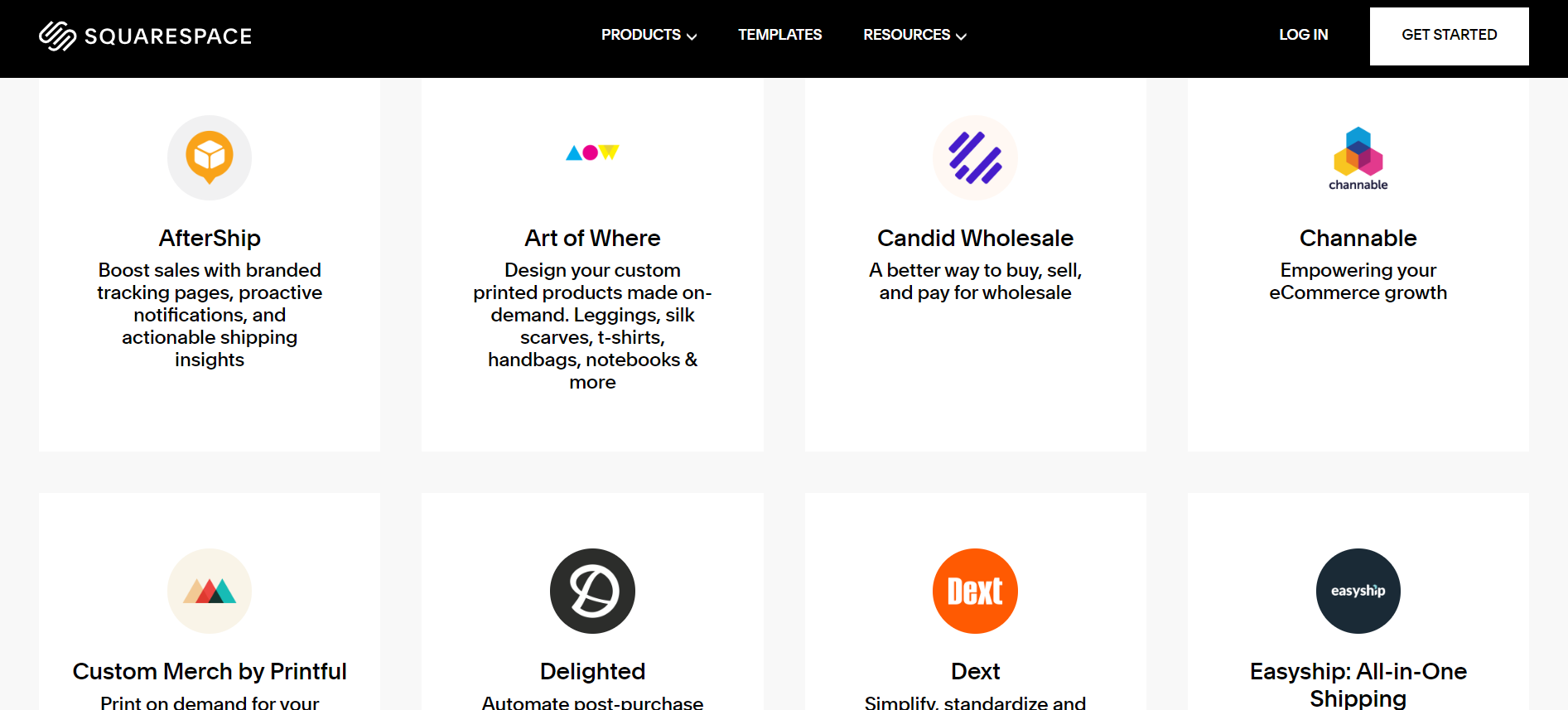
Marketing Features
Marketing featuresAssesses tools and options available for marketing.Score Components:
- SEO tools (40%): Effectiveness of SEO features.
- Marketing automation (30%): Availability and quality of marketing tools.
- Social Media integration (20%): Ease and depth of social media connectivity.
- Email marketing (10%): Quality and usability of email marketing tools.
 8.1
8.1
 7.2
7.2
🏆
Overall Winner: Squarespace
. Squarespace edges out Jimdo with a slightly higher score, offering a more comprehensive suite of marketing tools. Both platforms offer SEO tools, email marketing, blogging, social media integration, analytics and reporting, and ads and promotions. However, Squarespace provides more advanced features, especially in analytics and reporting.

|

|
|
|---|---|---|
|
SEO Tools |
|
|
|
Email Marketing |
|
|
|
Blogging |
|
|
|
Social Media Integration |
Direct linking and selling on social platforms, plus feed displays on-site |
Integration features for various social media platforms |
|
Analytics and Reporting |
Detailed insights into website performance and visitor behavior |
Integrated analytics for monitoring website traffic |
|
Ads and Promotions |
Integration with Google Ads and tools for managing sophisticated ad campaigns |
Tools and features for promotions, but detailed ad management may require external services |
Customer Support
Customer supportEvaluates the quality and availability of support options.Score Components:
- Response time (40%): Speed of support responses.
- Support quality (30%): Effectiveness and helpfulness of the support.
- Availability (20%): Range of support channels (phone, chat, email).
- Resource richness (10%): Quality of self-help and educational materials.
 7.8
7.8
 6.8
6.8
🏆 Winner: Squarespace
. Squarespace offers a more comprehensive customer support system, including live chat, email, a community forum, and a comprehensive help center. It also provides 24/7 email support and language support in several languages.
On the other hand, Jimdo offers email support, a call center, a knowledge base, and social media support, but it does not offer live chat support. Furthermore, Squarespace provides additional support for enterprises, while Jimdo does not. Therefore, Squarespace is the winner in this category.
Security
SecurityLooks at the platforms’ security measures and data protection.Score Components:
- Data protection (40%): Safeguards for user and customer data.
- SSL and encryption (30%): Implementation of secure connections.
- Compliance (20%): Adherence to industry security standards.
- Regular updates (10%): Frequency of security updates and patches.
 8.8
8.8
 8.3
8.3
🏆
Winner: Squarespace
. Squarespace’s security measures are comprehensive, including secure server storage, encryption, strict access controls, and compliance with regulations such as GDPR and CCPA. They also have vulnerability scanning and malware detection. For website security, they use built-in features like secure hosting, SSL certificates, vulnerability scanning, malware and spam filters, two-factor authentication, data encryption, and compliance with security regulations like PCI-DSS and GDPR.
Jimdo also prioritizes security, using AI for personalization without data training, employing IT security measures, and anonymizing web analytics data. They integrate third-party tools securely and offer GDPR compliance tools. For website security, they employ protective measures like a strong firewall, DDoS protection, HTTPS encryption for all traffic, TLS encryption for messages and emails, and SSL certificates for domains. They also ensure GDPR compliance and maintain a dedicated team for legal and information security. However, their security score is slightly lower than Squarespace’s, making Squarespace the winner in this category.
AI Capabilities
AI capabilitiesMeasures the effectiveness of AI-driven features and tools.Score Components:
- Automation efficiency (40%): Impact of AI on streamlining processes.
- Personalization (30%): AI-driven customization for users or customers.
- AI-Assisted design (20%): Role of AI in website design and functionality.
- Data analysis (10%): Use of AI in interpreting user data and analytics.
 7.5
7.5
 6.0
6.0

|

|
|
|---|---|---|
|
AI Builder |
No fully automated AI builder |
AI-driven website creation process |
|
AI Ecommerce Features |
AI-powered copywriting, SEO optimization, personalized email marketing |
Basic AI-powered design suggestions for store layouts |
|
AI Content Generation |
Generates diverse content including product descriptions, blog posts, social media captions |
No direct, dedicated content generation feature |
|
Additional AI Features |
SEO optimization, email marketing insights, inventory management insights |
Basic AI capabilities focused on website creation |
🏆 Winner: Squarespace
. With a score of 7.5, Squarespace’s AI capabilities are more comprehensive and advanced compared to Jimdo’s score of 6.0. While Squarespace does not have a fully automated AI builder, it offers a range of AI-powered features that streamline the website building process and enhance the ecommerce experience. On the other hand, Jimdo’s AI capabilities are more basic and primarily focused on website creation.


User Management
User ManagementAssesses the platforms’ capabilities in managing user roles, permissions, and accessibility.Score Components:
- Role Customization (40%): Flexibility in creating and defining user roles and
permissions. - Ease of Management (30%): User interface and tools for managing users.
- Access Control (20%): Effectiveness of access control measures for different user
levels. - Scalability (10%): Ability to manage a growing number of users efficiently.
 7.4
7.4
 5.8
5.8
🏆 Winner: Squarespace
. Both Squarespace and Jimdo offer different levels of user management based on their plans.
- Squarespace allows varying numbers of users with editing access depending on the plan. The Personal Plan allows one owner, Business and Commerce Plans permit 2 collaborators with different access levels, and the Enterprise Plan offers unlimited users, each with customizable access privileges, from full administrators to restricted contributors.
- Jimdo’s Free, Start, and Basic Shop Plans allow website management by a single owner. The Grow Shop Plan permits two editors, including the account owner and one collaborator. The Business Plan extends collaboration to five editors, consisting of the account owner and four collaborators. The Unlimited Plan provides unlimited editors, fostering a collaborative team environment. The VIP Plan, designed for online stores, does not specify a limit on editors for websites.
Squarespace User Roles and Access Levels:
| Role | Description | Access Highlights |
|---|---|---|
| Owner | The primary user who created the website and has full access. | Full site access, including billing, site settings, content editing, and member management. |
| Administrator | Users granted nearly full access to manage the site alongside the Owner. | Access to most areas except for some owner-specific settings like ownership transfer. |
| Content Editor | Users focused on adding and managing site content without full site access. | Can add, edit, and delete content on pages, blog posts, and manage comments. |
| Billing | Users who manage the subscription and billing details. | Access to billing information and the ability to update subscription details. |
| Store Manager | Users who manage the ecommerce aspects of the site. | Can manage inventory, fulfill orders, manage customers, and view sales analytics. |
| Custom | A role defined by the site owner or administrators with specific access. | Customizable access as defined by the Owner or Administrators, can vary widely between sites. |
Additional Features

|

|
|
|---|---|---|
|
SSL Certificate |
|
|
|
Custom Domain |
|
|
|
Free Custom Domain Included |
|
|
|
International Domains |
|
|
|
Mobile Responsive |
|
|
|
Page Speed |
|
|
|
Website Builder Mobile App |
|
|
|
Convert a Website To An App |
|
|
|
Website Analytics |
|
|
|
Multilingual Sites |
|
|
|
Multiple Users |
|
|
User Feedback
Squarespace is generally well-received for its user-friendly interface and versatile tools, making it a popular choice for those who aren’t tech-savvy. It offers a range of features, including website creation, SEO, and online selling, catering to a variety of users. Customers appreciate its good customer support and visually appealing templates, which help create a professional online presence. However, some users have reported issues with domain transfer/setup, limited customization options, and consider the pricing slightly higher. There are also occasional concerns about customer service and technical limitations like template rigidity and missing features.
On the other hand, Jimdo, a website builder platform, receives mixed reviews from users. Positive feedback highlights its ease of use, no-code editor, and quick website development for basic sites. However, criticisms include outdated design, limited templates, and concerns about pricing transparency. Some users appreciate it for simple projects, while others find it lacking for more complex websites. Common issues include restricted SEO in the free tier, support limitations, and late responses. The overall impression suggests Jimdo may suit beginners but could be less ideal for those seeking advanced features or modern designs.
The making of this blog
We followed a clear, step-by-step process to write and research this article.
FAQ
Which platform is better for beginners, Squarespace or Jimdo?
Can I use both Squarespace and Jimdo for ecommerce?
How do Squarespace and Jimdo compare in terms of design flexibility?
What are the major differences in pricing between Squarespace and Jimdo?
Which platform offers better customer support, Squarespace or Jimdo?










